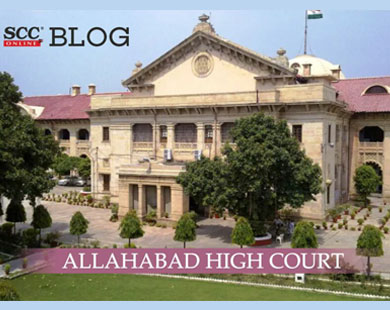Allahabad High Court: In an application filed by Arvind Kejriwal against the judgment and order passed by the Sessions Judge, Sultanpur in criminal revision, rejecting the revision filed by him and upholding the order passed by the Trial Court whereby, his application seeking discharge under Section 239 of Code of Criminal Procedure Code, 1973 (‘CrPC’) for making derogatory remarks against BJP and Congress during 2014 general elections has been dismissed, Rajesh Singh Chauhan,J. said that there is no infirmity, illegality or perversity in the impugned orders passed by the Revisional Court and the Trial Court, as both the impugned orders are well considered, reasoned and speaking orders. Thus, dismissed the present application.
In the case at hand, a Magistrate, lodged First Information Report (‘FIR’) under Section 125 of the Representation of the People Act, 1951 (‘the Act, 1951′), alleging inter-alia that the applicant flouted the model code of conduct by making public statement “Jo Congress ko vote dega, mera manana hoga, desh ke saath gaddari hogi. Aur jo Bhajpa ko vote dega use Khuda bhi muaf nahin karega, des ke sath gaddari hogi”. After completion of investigation, the Investigating Officer submitted the charge sheet against him. The Trial court has taken cognizance against Arvind Kejriwal under Section 125 of the Act, 1951, and summoned him
The Court noted that this is the third application filed under Section 482 CrPC before the Court.
The Court reiterated that Article 19 of the Constitution of India gives all citizens the rights regarding freedom of speech and expression but subject to reasonable restrictions for preserving inter-alia public order, decency or morality. The extent of protection of speech would depend on whether such speech would constitute a propagation of ideas or would have any social value. If the answer to the said question is in affirmative, such speech would be protected under Article 19 (1) (a); if the answer is in negative, such speech would not be protected under Article 19 (1) (a).
Further, it said that reasonable restrictions are meant for preserving inter-alia public order, decency or morality. Prima facie, it is not decent for a person, who is the Chief Minister of one State, to utter any sentence or word which has any hidden meaning. As per the contents of his speech, the voters of the Congress would be termed as ‘Gaddar of the country’ whereas the voters of the Bhartiya Janta Party would not be pardoned by ‘Khuda’. It is true that Khuda, Bhagwan or God are one and the same but using the word ‘Khuda’ by one Hindu leader only for those voters, who cast their votes to the Bhartiya Janta Party not to the Congress can only be clarified by the Arvind Kejriwal during the trial about his intent to use such word.
The Court said that since credible evidence has been collected during investigation and charge sheet has been filed, therefore, veracity of charge may not be examined or tested by invoking inherent power under Section 482 CrPC.
The Court took note of Section 125 of the Act, 1951, and said that it appears that if the feelings of enmity or hatred between different classes of citizens of India is promoted, that shall be treated as an offence. The statement given by Arvind Kejriwal is not so plain and simple as for one set of voters, he is uttering the term ‘Gaddar of the country’ and for the other set of voters, he is saying that ‘Khuda shall not pardon them’. Prima facie, it appears that he is threatening the voters in the name of Khuda knowing fully well that if he uses the term ‘Khuda’, some set of voters belonging to different religion might have severely been influenced.
The Court noted that the Supreme Court has not stayed the proceedings pending against Arvind Kejriwal before the Trial Court and only his presence has been dispensed with, keeping the appeal pending, therefore, the proceedings of the present case may not be stayed or quashed.
Further, the Court said that the extra-ordinary power of High Courts enshrined under Section 482 CrPC is an inherent power to secure the ends of justice or to prevent any abuse of the process of any Court, and it should be invoked very sparingly and cautiously.
Placing reliance on State of Haryana v. Bhajan Lal, 1992 Supp (1) SCC 335 , wherein the Court summarised the legal position by laying the guidelines to be followed by High Courts in exercise of their inherent jurisdiction. It said that the present case does not fall in any category set out in Bhajan Lal(supra).
The Court found no infirmity, illegality or perversity in the impugned orders passed by the Revisional Court and the Trial Court. Thus, dismissed the present application.
[Arvind Kejriwal v. State of UP, 2023 SCC OnLine All 14, order dated 16-01-2023]
Advocates who appeared in this case :
Counsel for Applicant:- Advocate Mahmood Alam, Advocate Anjani Kumar Mishra, Advocate Manmohan Singh, Advocate Nadeem Murtaza, Advocate Sheeran Mohiuddin Alavi
Counsel for Opposite Party: – Government Advocate
*Apoorva Goel, Editorial Assistant has reported this brief.







